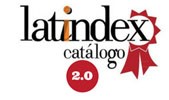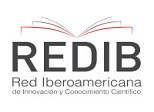Investigative Culture of Postgraduate Studies in Health Sciences
DOI:
https://doi.org/10.69890/hallazgos21.v8i1.608Keywords:
Health Sciences;, Investigative culture;, postgraduate.Abstract
Introduction: the investigative culture is assumed as the set of attitudes, procedures and productions aimed at obtaining knowledge to promote educational, scientific, technological, and humanistic progress, which is especially relevant in health sciences whose priority is well-being. biopsychosocial to generate relevant knowledge. Objective: Disseminate the results of a field investigation on investigative culture in postgraduate studies in health sciences. Methods: This is a mixed study, which includes a quantitative phase, through the application of a questionnaire of 55 items of closed questions, with a dichotomous option (YES or NO), to a random sample of 25 postgraduate students and a second phase. qualitative in which a semi-structured virtual interview of ten (10) questions was carried out with 7 students from the different postgraduate courses offered in health sciences. Results: The weakest indicators are: the visibility of students (8%), perception of the institution (11%), promotion of research (30%) and perception of research lines (28%), averages that according to the scale ad hoc are deficient, and therefore, hinder the proper development of a research culture in postgraduate students in health sciences. Findings: The investigative activities that are carried out as degree works, projects, conferences, clinical cases and presentations are often affected by the excessive care burden. Conclusions: The investigative culture in postgraduate studies in health sciences must be strengthened, for which it is necessary to consider recognizing the weaknesses present in educational actors, academic, research and hospital institutional settings to optimize them.
References
Aguado, E., & Becerril A. (2016). Producción científica venezolana: apuntes sobre su pérdida de liderazgo en la región latinoamericana. Revista Venezolana Gerencia, 21(73). https://www.redalyc.org
Aguayo, J., Atucha, N, & García J. (2021). Las unidades de educación médica en las facultades de Medicina y de Ciencias de la Salud en España. ¿Son necesarias? Educación Médica. https://doi.org/10.1016/j.edumed.2020.09.001
Carvajal, A., & Carvajal, E. (2019). Producción científica en ciencias de la salud en los países de América Latina, 2006-2015: análisis a partir de SciELO. Revista Interamericana Bibliotecología, 42(1),15-21. http://www.scielo.org.co
Conejero, J. (2020). Una aproximación a la investigación cualitativa. Revista Neumología Pediátrica (15), 242 – 244. https://www.neumologia-pediatrica.cl
Del Castillo, D., & Rodríguez, T. (2018). La ética de la investigación científica y su inclusión en las ciencias de la salud. Acta Médica del Centro, 12(2). https://revactamedicacentro.sld.cu/index.php/amc/article/view/880
Estévez, I. (2020). Análisis del desarrollo profesional del docente universitario de ciencias de la salud a través de las ecologías de aprendizaje. [Tesis doctoral] Universidad da Coruña. España. https://ruc.udc.es/dspace/bitstream/handle/2183/26480/ EstevezBlanco_Iris_TD_%202020.pdf?sequence=2&isAllowed=y
León, A. (2018). La actitud y la cultura investigativa: fundamentos esenciales para la formación de investigadores y de “maestros investigadores”. Universidad Externados de Colombia. Facultad de Ciencias de la Educación. https://cuestioneseducativas.uexternado.edu.co/la-actitud-y-la-cultura-investigativa-fundamentos-esenciales-para-la-formacion-de-investigadores-y-de-maestros-investigadores/
Mayz, J., & Pérez, J. (2002). ¿Para qué hacer investigación científica en las universidades venezolanas? Investigación y Postgrado, 17(1), 159-171. http://ve.scielo.org/scielo.php?script=sci_arttext&pid=S1316-00872002000100007&lng=es&tlng=es.
Miana, V. (2021). Aplicación de las tecnologías de la información y la comunicación en la enseñanza de la Anatomía Humana en Ciencias de la Salud. Revista Educación Ciencia Salud, 18(2). http://www.udec.cl
Montoya, W. (2019). Actividad investigativa en el docente universitario. Revista Horizonte, 3 (9),15 – 32. https://revistahorizontes.org
Osorio, A., Gómez, M., Alzate, T., Giraldo, G., & Salazar, O. (2021). Ser docente de ciencias de la salud en la Universidad de Antioquia, Colombia. Revista Facultad Medicina, 70(4). https://revistas.unal.edu.co
Requena, J., Caputo, C., Apizt, R., Soyano, A., & Vargas, D. (2018). La investigación venezolana en ciencias de la salud vista desde sus publicaciones. Gaceta Médica Caracas, 126 (3), 246-265. http://saber.ucv.ve
Rodríguez, H., García. G, & Fernández, F. (2019). Una mirada a la formación investigativa en la medicina desde el doctorado. Revista Cubana Medicina Militar, 48(4):905-917. https://revmedmilitar.sld.cu
Published
How to Cite
Issue
Section
License
Los artículos enviados a la Revista Científica Hallazgos21 deberán ser totalmente originales e inéditos.
Los autores son los responsables de los textos y las imágenes incluidas en los artículos y no necesariamente reflejan el pensamiento de la editorial o de la Pontificia Universidad Católica del Ecuador, Sede Esmeraldas (PUCESE).
Los autores disponen cederle a la Revista Científica Hallazgos21 todos los derechos inherentes para la edición, publicación y distribución o divulgación del mismo.
Se autoriza a las revistas firmantes de los acuerdos de Encuentros de Revistas Latinoamericanas para reproducir en parte o totalmente los artículos con la sola mención de la fuente claramente señalada.







